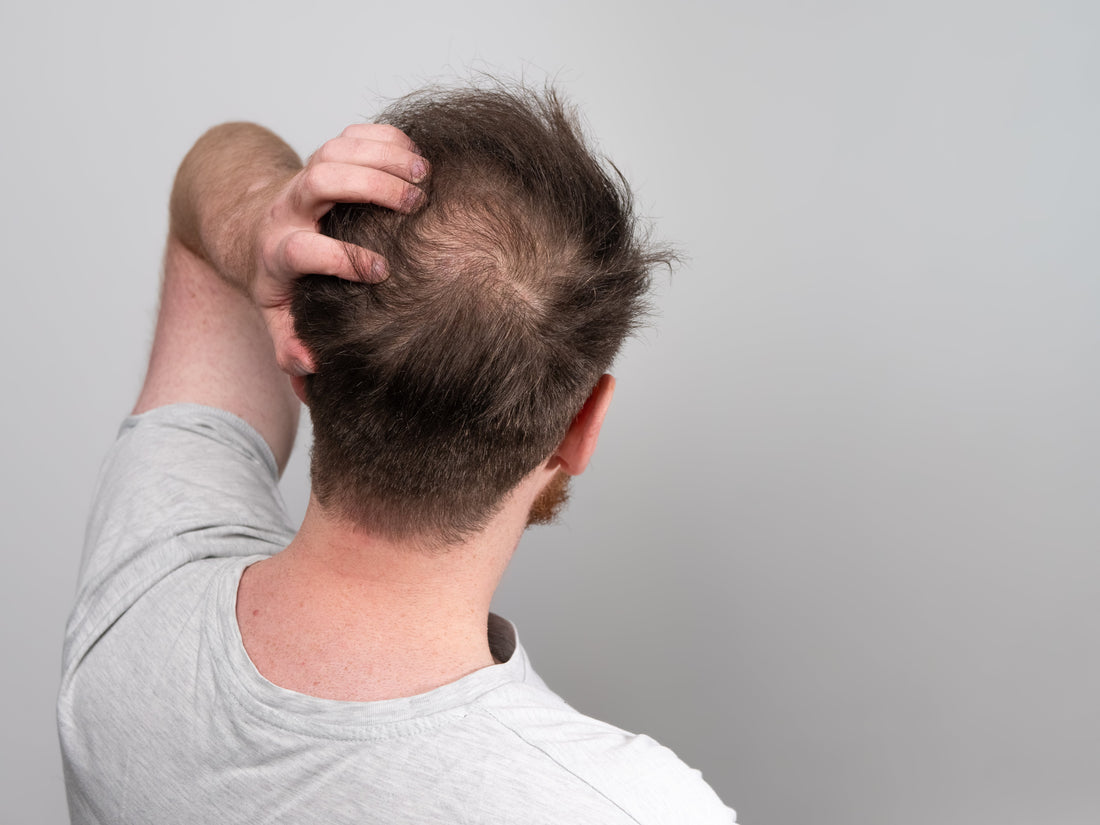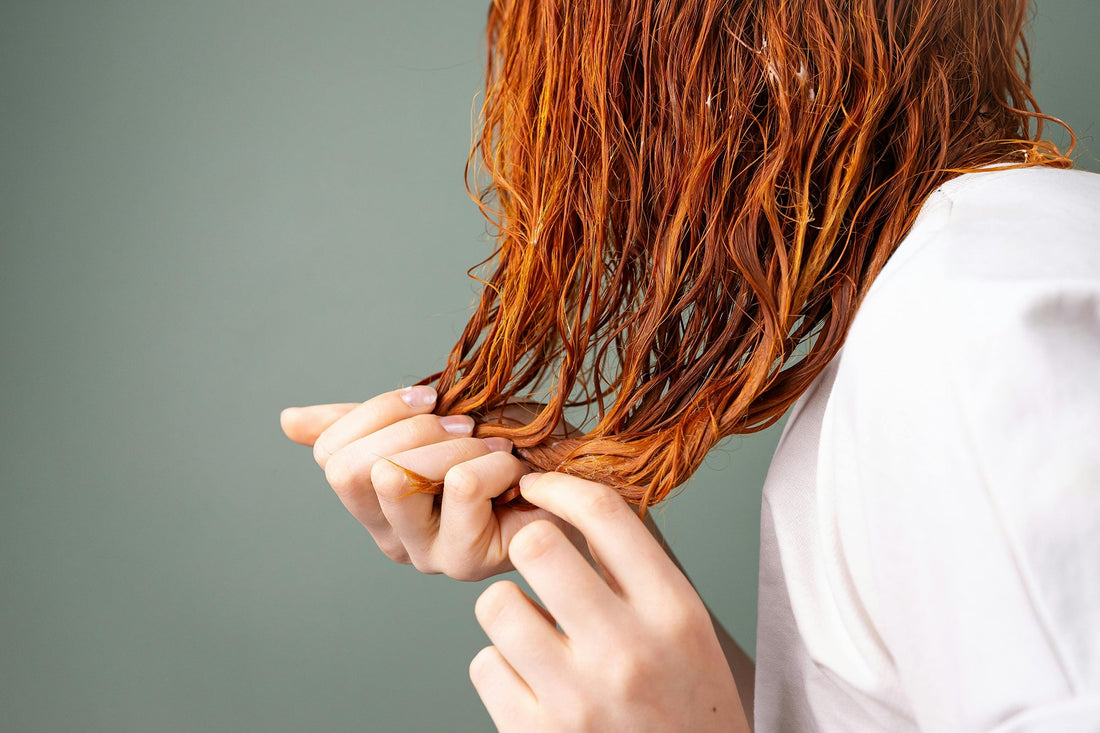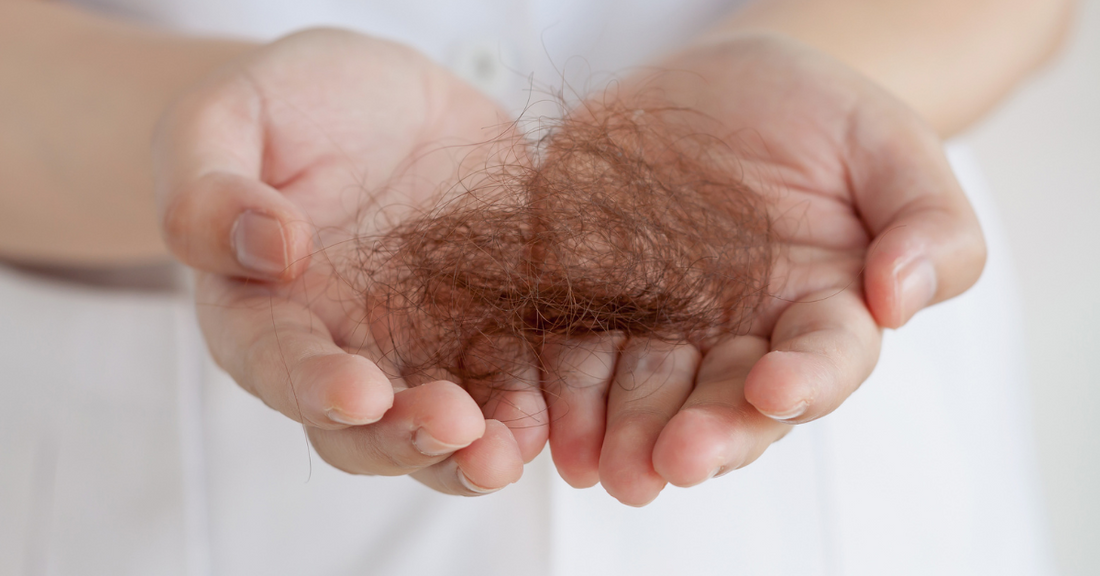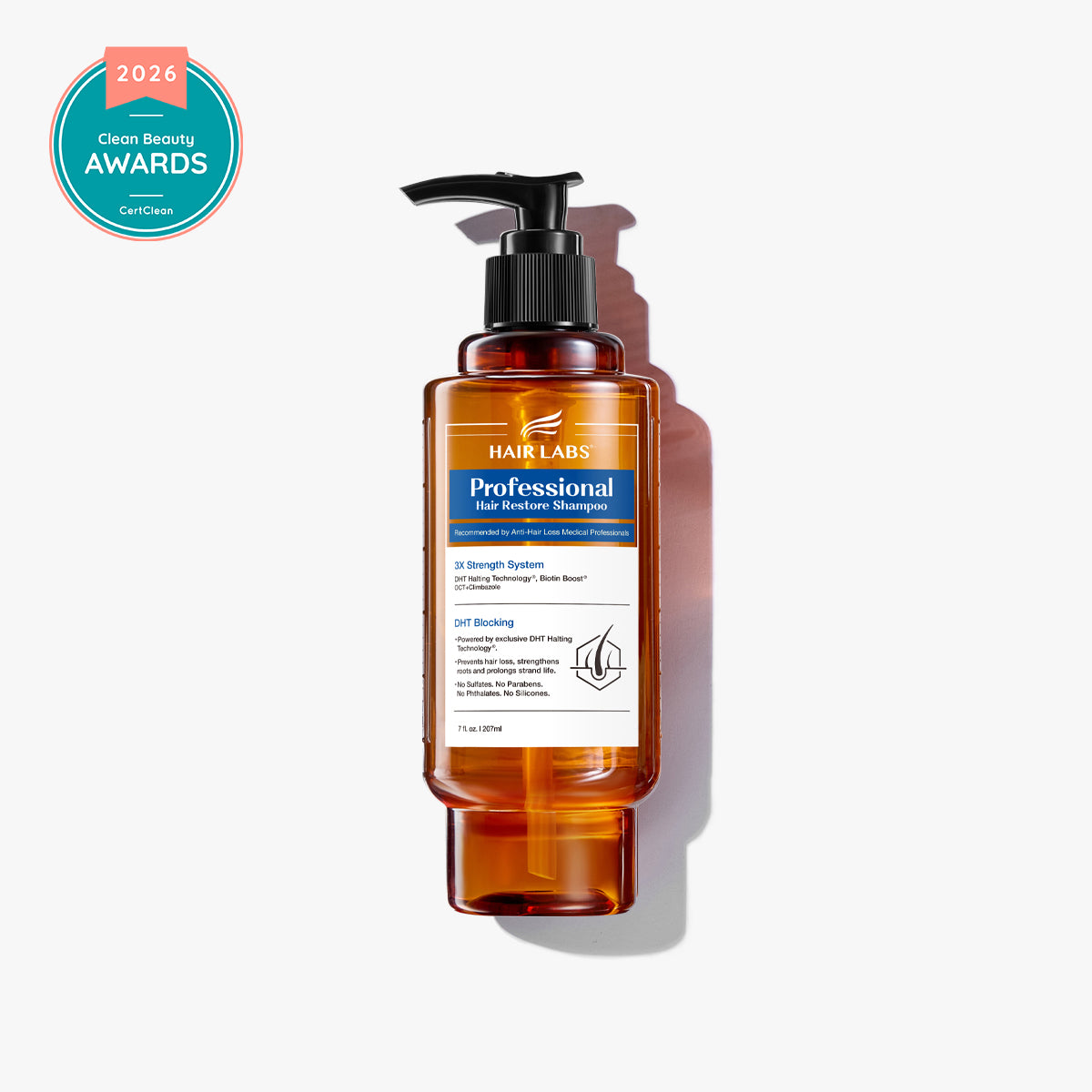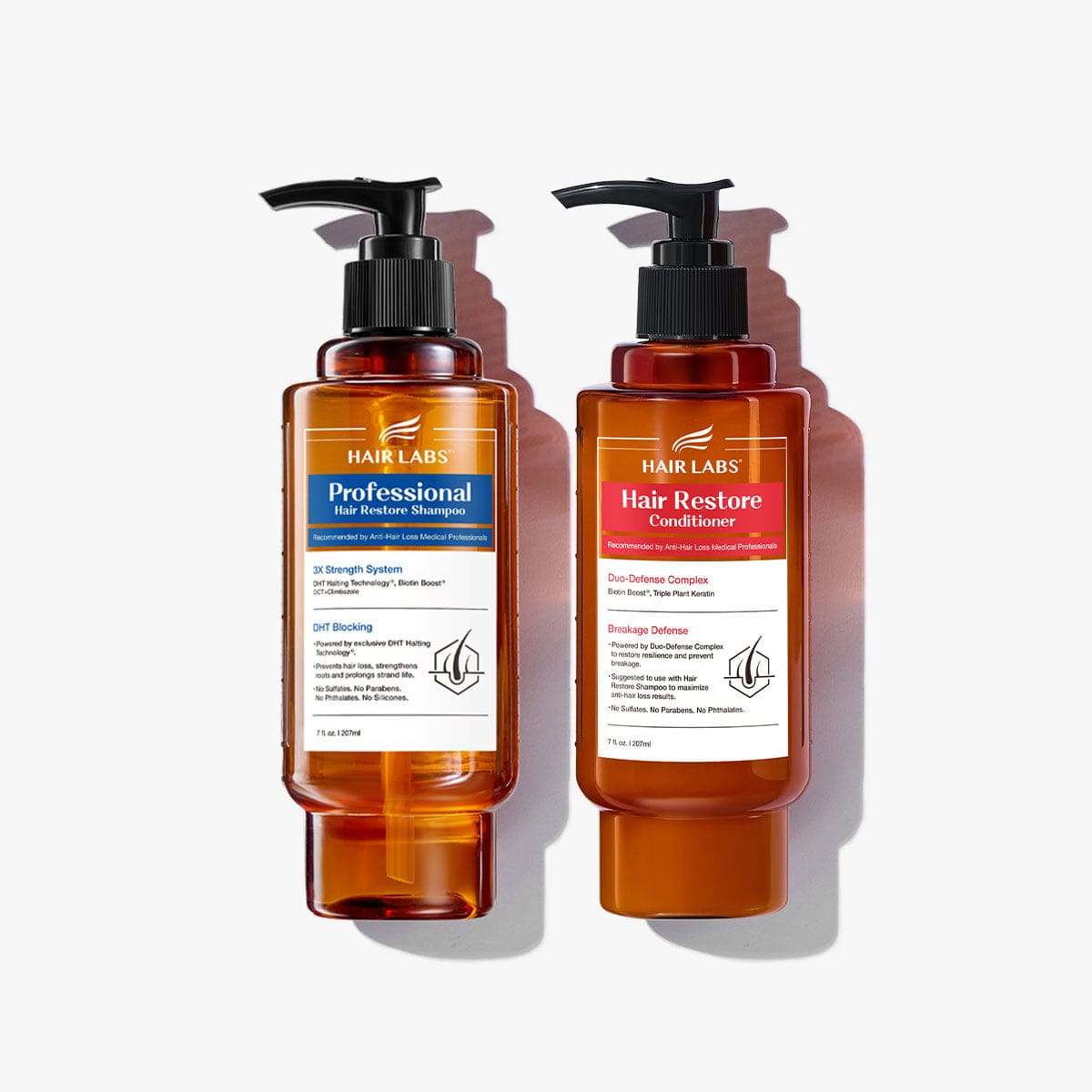Hair loss isn’t just a guy problem. In women, hair loss manifests as decreased volume in the middle of the scalp, thinning overall or as a widening part. Are you prepared to prevent it? And, if you are already experiencing it, do you know how to reverse it?
Spencer Stevenson, aka Spex, is a world-renowned hair loss expert at www.spexhair.com who offers unbiased advice based on his own research and experience. Stacey Chillemi is founder of The Complete Herbal Guide, which focuses on symptoms, causes, diagnoses and natural treatment options for various conditions. Here, Spex and Stacey address FAQs on female hair loss and how those who are experiencing hair loss or thinning can prevent and stop it.
What Causes Hair Loss And Thinning In Women?
There is a wide variety of key reasons. The most common, says Stacey, is heredity female pattern baldness. But that’s just the beginning. Thinning hair can also be caused by hormonal changes brought on by pregnancy, childbirth, thyroid conditions or menopause; medical conditions like alopecia areata, which causes patchy hair loss; as a side effect of certain drugs or medical treatments like chemotherapy or radiation; stress or even from certain hairstyles that pull hair tight like ponytails, cornrows or extensions.
Most women will notice hair loss beginning between the ages of 45 and 55, says Spex, but it can start as early as the 20s. “Over half of women will find their hair thinning by the age of 50,” he says, “and it’s a condition endured by an estimated 70 percent of women over the age of 70.”
Can Female Hair Loss And Thinning Be Reversed?
It depends on the underlying cause. “A dietary condition, for example, can be corrected with supplements or improvement in diet,” explains Spex. “Life-stage issues such as pregnancy and menopause are going to take their toll and quite often, the level of hair loss will even out once the stage is complete. In the case of menopause, that full, lustrous head of hair probably won’t return to what it once was, but the hair fall will usually slow dramatically.”
What Products And Strategies Are Recommended For Women With Hair Loss And Thinning?
It depends on the cause and on the individual, believes Spex, but some of the strategies he recommends include:
- Minoxidil. Initially developed as a treatment for high blood pressure, it became known as a drug that could grow hair in places where it was lost. Some women – not all – experience great results. It’s important to keep in mind that one must stay on Minoxidil for at least six months to cover the full hair cycle. One favorite is Hair Restoration Laboratories Ultra Strength Hair Treatment which not only contains FDA-approved 5% minoxidil but also a number of powerful blocking ingredients that, when combined with 5% minoxidil, significantly improve the quality of hair and scalp.
- Platelet Rich Plasma Therapy (PRP). Known as the ‘Vampire’ treatment, the patient’s blood is drawn, naturally enhanced to boost the number of platelets and key factors then reinjected back into the scalp. This can revive dying follicles and hair.
- Iron supplements – Iron deficiency is thought to be a hair loss cause in a lot of women. Spex recommends telling clients to see their doctor for a blood test to check levels, particularly if they’re vegan/vegetarian, have a history of anemia or experience heavy menstrual bleeding. The doctor may prescribe an iron supplement, which could help to remediate the hair loss.
- Hair Restoration Laboratories’ Hair Restore Shampoo and Conditioner Set. “This shampoo and conditioner set helps keep hair healthy and protects against the effects that cause hair loss,” says Spex. “It treats hair loss at the root, and I would say it’s the most effective daily shampoo and conditioner set for women looking for help on the market today. They also offer a conditioner to work alongside the shampoo. I’m highly confident, based on a great deal of feedback from many patients, that this shampoo is a vital part of any hair loss sufferer’s regime.”
Stacey is also a fan of Hair Restoration Laboratories’ Hair Restore Shampoo and Conditioner Set for women experiencing hair thinning and loss. She uses it and states: “I noticed my hair became thicker and the speed definitely increased,” she comments. “I also noticed my hair is much silkier and smoother, with a nice shine.”
Some clients may opt for medical interventions, says Stacey, like hormone replacement therapy (HRT) which is commonly prescribed at menopause, or hair transplantation, which involves harvesting resistant follicles from the back of the head and transplanting them to bald areas. The latter process can be painful and expensive, however, and patients run the risk of scarring and infection.
In her work, Stacey advocates the use of several natural herbs to help with female hair loss:
- Saw palmetto. Multiple studies establish saw palmetto’s ability to encourage optimal hair by targeting the main cause of genetic hair loss.
- Biotin. This essential B vitamin promotes healthy hair and overall hair health by strengthening both the hair follicle and the hair shaft.
- Pumpkin seed extract. Studies show this ingredient stimulates healthy hair by suppressing the harmful effects and increasing scalp circulation.
- Caffeine. Research shows caffeine stimulates hair follicles to grow thicker, stronger hair.
- Green Tea Extract. It’s rich in polyphenols that stimulate hair follicles, improve hair anchoring and promote stronger, healthier-looking hair.
- Black Cumin Oil. Rich in antioxidants and fatty acids, it can strengthen hair and improve hair health.
All of these ingredients and more are included in Hair Restoration Laboratories’ Halting Technology® - a proprietary formula used in all of the company’s Hair Restore products. The formula contains the maximum amount of clinically-proven, fighting ingredients to prevent hair loss and thinning.
“I understand the pain,” says Spex. “I’ve been dealing with my own hair loss for decades and have made it my life’s work to research products and treatments as they come on the market. My advice is to advise your clients to determine the cause of their hair loss and find the appropriate solutions as soon as possible. The sooner treatment starts, the better the outcome!”



